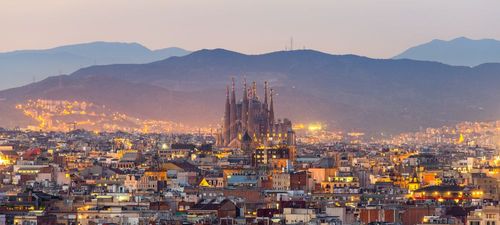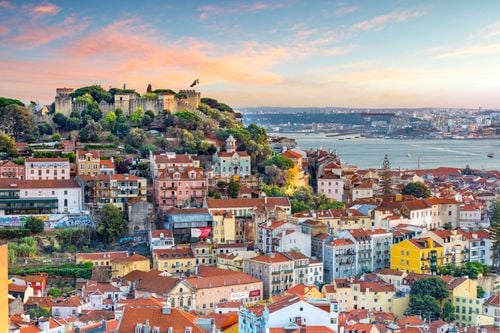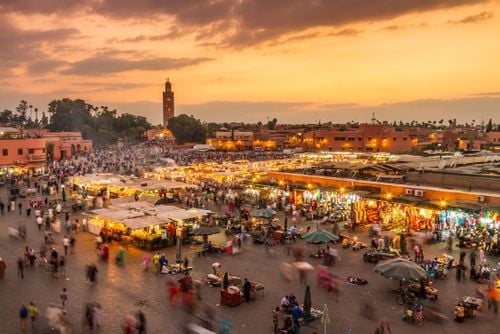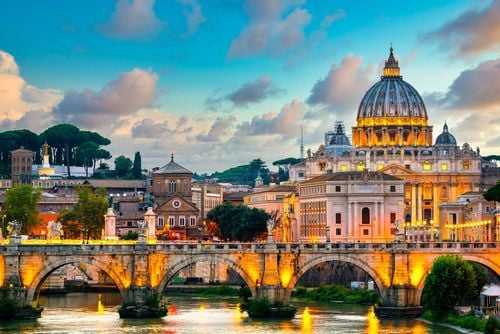A Mediterranean jewel with many facets
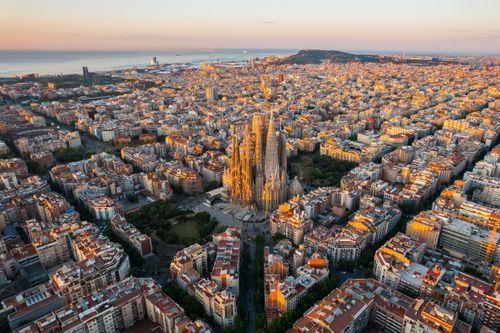
Panoramic view Ibiza
- © Serenity-H / Shutterstock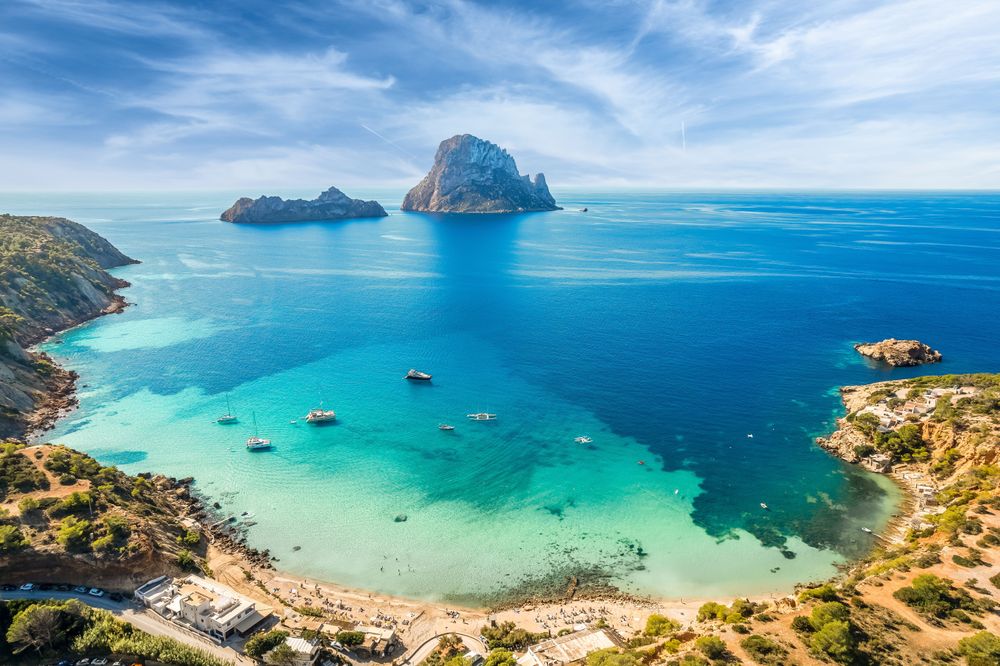
A Mediterranean jewel with many facets
In the Balearic archipelago, attached to Spain, Ibiza is the party island par excellence. With its famous oversized clubs, it attracts many visitors every year to dance to the sound of the world's most popular DJs. Yet Ibiza has more than one hidden side, starting with its wild creeks and its still-rooted hippie culture.
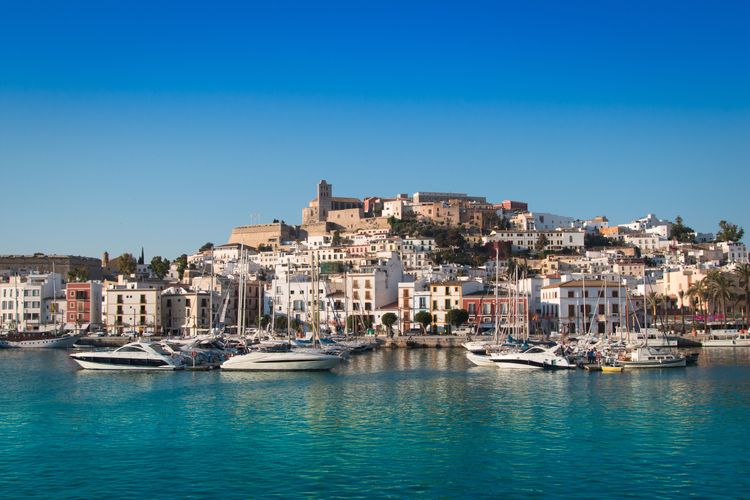
Town of Ibiza, Balearic Islands
- © Andrzej Kubik / ShutterstockIf someone says 'Ibiza' to you, the first image you're likely to think of is a crowd of revellers dancing in a huge nightclub with David Guetta at the decks. Since the 1990s, the so-called Pearl of the Balearic Islands has become a mecca for electro music and a haven for the international jet set, but it would be wrong to reduce this Mediterranean island to parties at Pacha (Ibiza's iconic club) and flashy yachts.
If the east coast is home to a high concentration of luxury tourist complexes and concrete ramblas (reminiscent of the Costa Brava in Spain), the northern part of the island, which is wilder and less busy, has treasures of beauty in store for you, with its glowing arid sierras, its peaceful ochre-coloured hamlets and its splendid isolated coves. The charming town of Ibiza (Eivissa in Catalan) is of historical interest and will delight visitors.
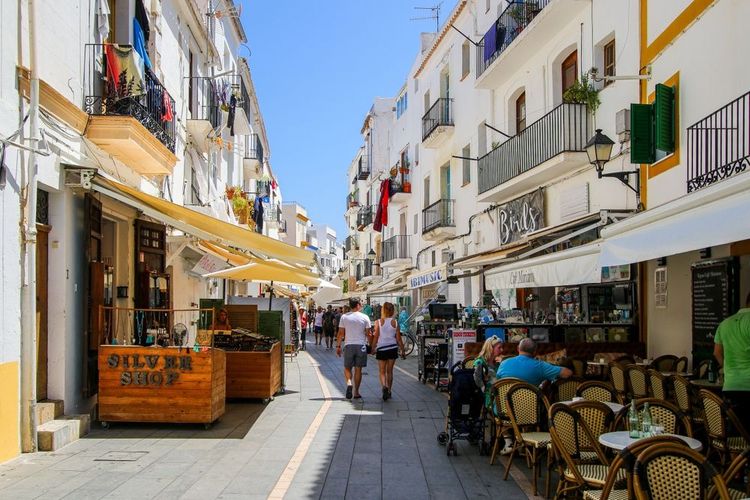
Downtown Eivissa
- © Alexandre.ROSA / ShutterstockMore accessible than it seems and far from being limited to dancefloors, Ibiza is an ideal destination for a change of scenery without having to go to the other side of the world, with friends, lovers and even families! Whether you like the nightlife, cliffside walks over the Mediterranean, long afternoons on heavenly beaches or sunny walks in charming villages, the island of Ibiza, which forms the Pityusas archipelago in the Balearic Islands with Formentera, will meet your expectations.
It is also possible to discover the different facets of the island in a week's travel and to slip into the shoes of a clubber in San Antonio (the party centre) or a contemplative hippy on the mystical Atlantis peninsula.
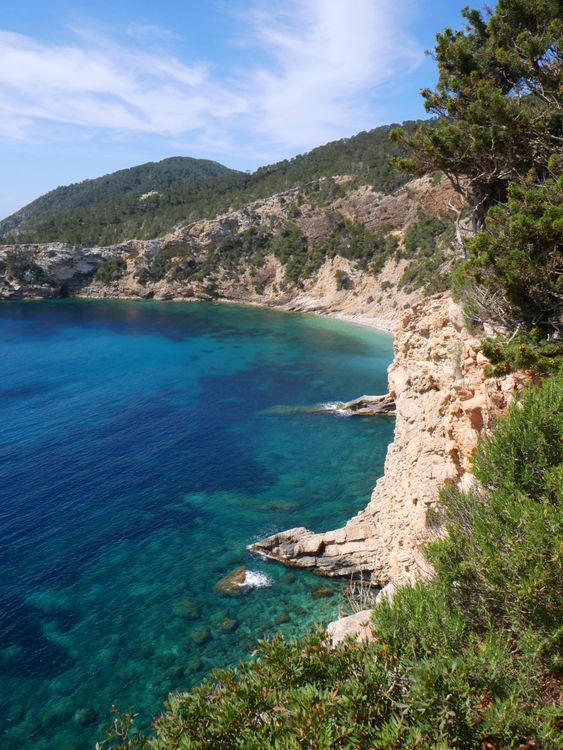
Ibiza, Ballet
- © JUNHAO / ShutterstockSince the 1970s, the northern part of Ibiza has become a real bohemian bastion, with many communities having settled there to create organic farms and sometimes to escape the conscription in Vietnam. Many artists from that era, such as Bob Dylan, stayed here and helped to establish a strong counter-culture that is part of Ibiza's DNA.
Today, the hippie heritage can be found in particular at the Dalias, the emblematic club in the north of the island where the psytranse evenings are perpetuated, which originally took place in the middle of the countryside, and in the colourful hippie markets which are springing up all over the place, particularly in Es Cana and San Carlos, and which offer a wide range of local handicrafts and products imported from the East.
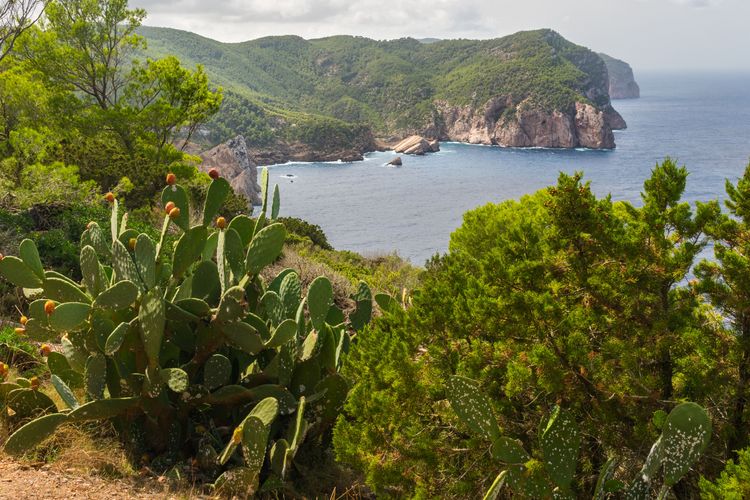
Ibiza, Baléares
- © MarcoPachiega / ShutterstockThis bohemian spirit undoubtedly contributes to the island's charm and makes for a magical experience. Let yourself be carried away by this wave of carefree well-being and enjoy a sunset on the beach of Benirras to the sound of the percussionists who gather there every Sunday evening, unforgettable!
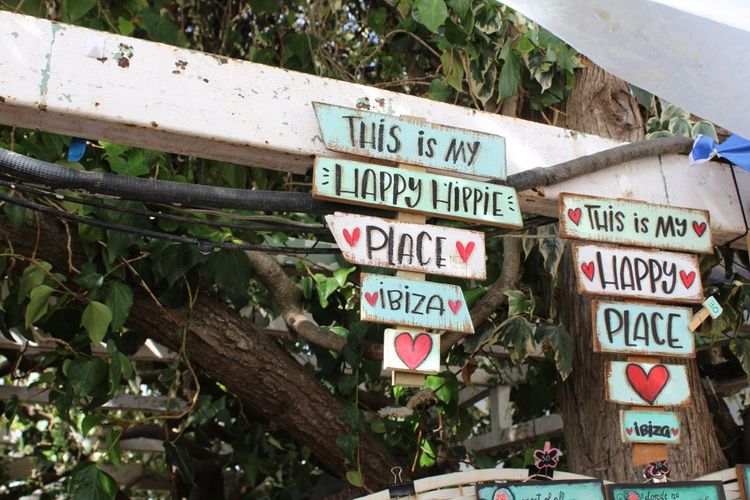
Typical wooden panels at Ibiza markets
- © Romeebult / ShutterstockIn short, despite its deserved status as the queen of the night, Ibiza is full of wild places with an unsuspected tranquillity. Nature lovers will have more than one marvel to discover, such as the sublime bay of Cala d'Aubarca, a secluded setting of luxuriant vegetation, the legendary rock of Es Verdra, one of the most spectacular sites on the island, or Ses Salines, the immense marshes with changing colours in the south of the island.
Between exploring the caves (Cova Marça and Cova des Culleram, to name but a few), swimming in the turquoise water and the abundance of water sports of all kinds, you are bound to find your own way to experience Ibiza! If you have the time, make a stopover on the very wild island of Formentera, for moments of pure escape...
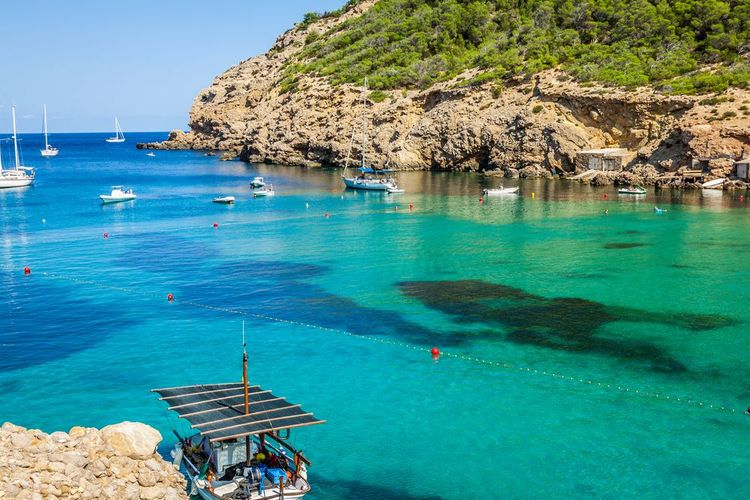
Cala Benirras à San Joan aux Baléares
- © Lukasz Janyst / Shutterstock
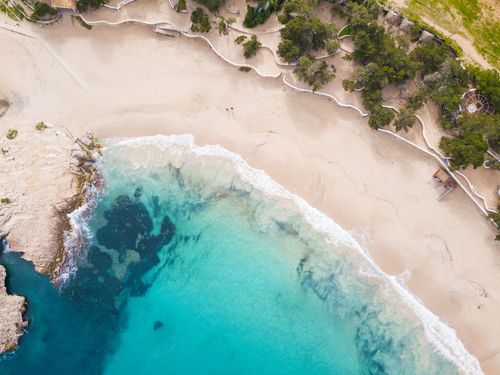
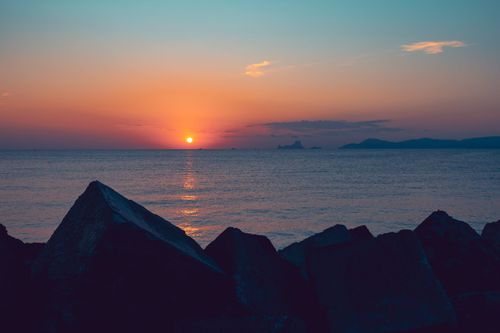

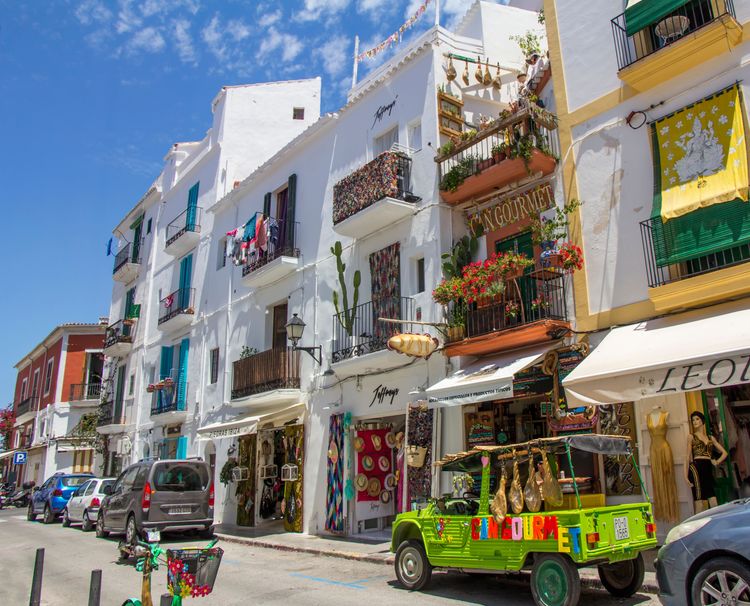 1
1
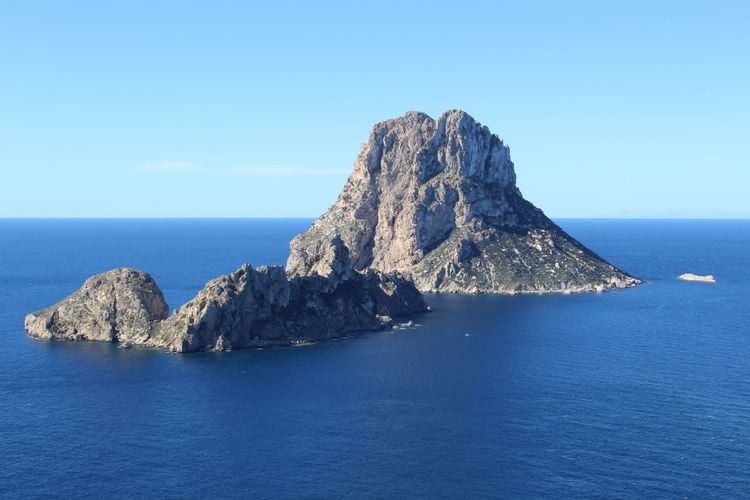 2
2
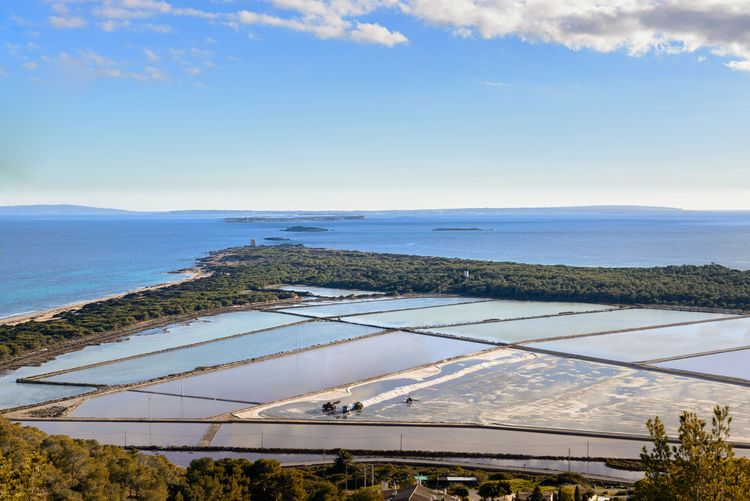 3
3
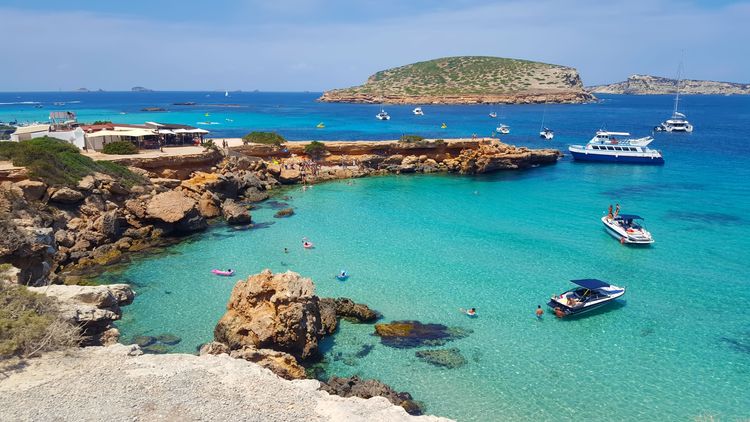 4
4
With daily direct flights in high season (two hours and a half for a flight from London), Ibiza is a very accessible destination. However, you may have to take a connecting flight the rest of the year. The cheapest tickets cost around 87 pounds, but beware, prices soar in high season. Located 7km south of Ibiza town, the island's only airport is home to Oficina de turismo de Ibiza and numerous car rental companies. Note that the island of Formentera does not have an airport and is only accessible by ferry.
It's not easy to find cheap accommodation in Ibiza, especially during the high season when everything is packed... Make sure you book well in advance to avoid unpleasant surprises. As well as the luxury resorts, whose charm leaves much to be desired, and the relatively inexpensive hostals, which you'll find mainly on the east coast, the island also boasts around thirty country-style hotels set in converted farmhouses. These accommodations are far from inexpensive, but they will give you an appreciable sense of calm in a typical Balearic atmosphere. In summer, with the climate hot and constant, the ultimate plan for accommodation without breaking the bank too much remains camping. You'll find a number of very well-maintained and friendly structures where it's good to live in the open air, just a stone's throw from the beach or swimming pool.
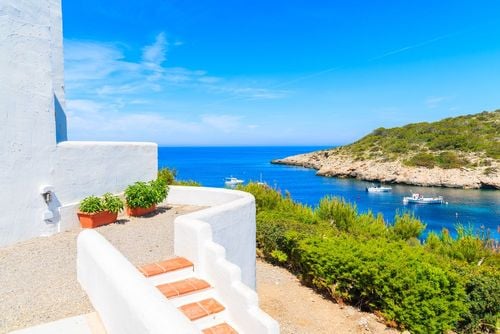
June to September is the high season in Ibiza, with the number of visitors at its peak, resulting in crowded beaches, overcrowded accommodation and exponentially rising prices. Clearly, this is not ideal if you are looking for peace and quiet and a healthy bank account. Our advice: go at the very beginning or end of the season (from May to June or September) to enjoy the summer heat and the festive atmosphere of the island without suffering from the tourist influx.
You will need a valid passport to enter the country as Spain is in the European Union. European Union Travel Insurance is always good to have, just in case.
Since October 2022, all health restrictions related to the COVID 19 pandemic have been lifted for entry into Spain. However, some airlines may still require a health pass (2 doses of vaccine or PCR test less than 48 hours old) to board the plane. It is possible to take a test on the spot, all towns in Ibiza have a testing centre.
Let's not kid ourselves, although flights to Ibiza are not very expensive, the cost of living there is far from cheap. Being an island and a tourist area, clubs, restaurants and accommodation are very expensive, and prices soar in summer. However, it is quite possible to organise yourself so as not to spend too much money and to reserve your money to treat yourself. For example, you can opt for camping and prepare your own lunches by buying local fruit and vegetables from the many mini-markets on the island. Moreover, if you have to break your piggy bank to access the trendy parties, in Ibiza, the beauty of the landscape is free! Hiking through the sumptuous southern pine forests and frolicking in the translucent water on dreamy beaches will cost you nothing, but will remain etched in your memory for a long time.
The local currency is Euros.
Castilian Spanish and English are commonly spoken in Ibiza, but many road signs are written in Catalan and street names sometimes differ from one language to another. Don't panic though, basic knowledge of Spanish will get you where you need to go.
By bus: Several companies share destinations all over the island, with prices varying according to distance. Details of the routes for each company and timetables for each season can be found at https://ibizabus.com/ibiza/?utm_source=easyvoyage. The network is fairly well served, although some remote locations (such as the coves in the north of the island) require a car for access.
By car: Renting a car is still a very good way to visit the island in complete freedom and to access its wild corners which are not necessarily served by buses. The island is not huge and if you are not inclined to nomadism, you can put your bags in one place for a week and then go on a tour by car. The road network is very well developed and will allow you to get from one end of Ibiza to the other quickly. You will find many rental agencies at Eivissa airport and on the island. Remember to book well in advance of your trip. Here is our selection of the most reliable agencies:
Bari Car in Sant-Antoni de Portmany: 971 34 07 78
Avis Goldcar Ibiza at Eivissa airport: 965 94 31 86
If you are travelling alone or with a partner, a good compromise is to rent a scooter or motorbike to get around the island, especially in summer when the weather is good and the roads are crowded around the towns.
Good to know if you hire a car:
- Petrol pumps are quite rare outside the main towns, given the short distances. Most are closed on Sundays and open late in the morning, which can be a problem if you have to return your rental car early in the morning at the airport with a full tank (remember to do this the night before).
- Parking spaces can be scarce in the summer, especially in Eivissa and Sant Antoni, so public transport is still the best way to visit these cities.
- Drive carefully on the dirt roads in the interior of the island, most rental companies do not cover damage to the chassis.
If you're desperate to escape the crowds and don't care about sunbathing, why not go to Ibiza in winter? Deserted by tourists, the island still has a rather mild climate (jumpers are still necessary!) and emanates a quietness that is (very) difficult to feel in summer. This is the perfect opportunity to bond with the locals and to admire the almond blossom in February. Surfing enthusiasts can also enjoy the beautiful waves in January. An opportunity to discover the riches of Ibiza in complete privacy.
explore Try out our comparators
It is Easy to travel
